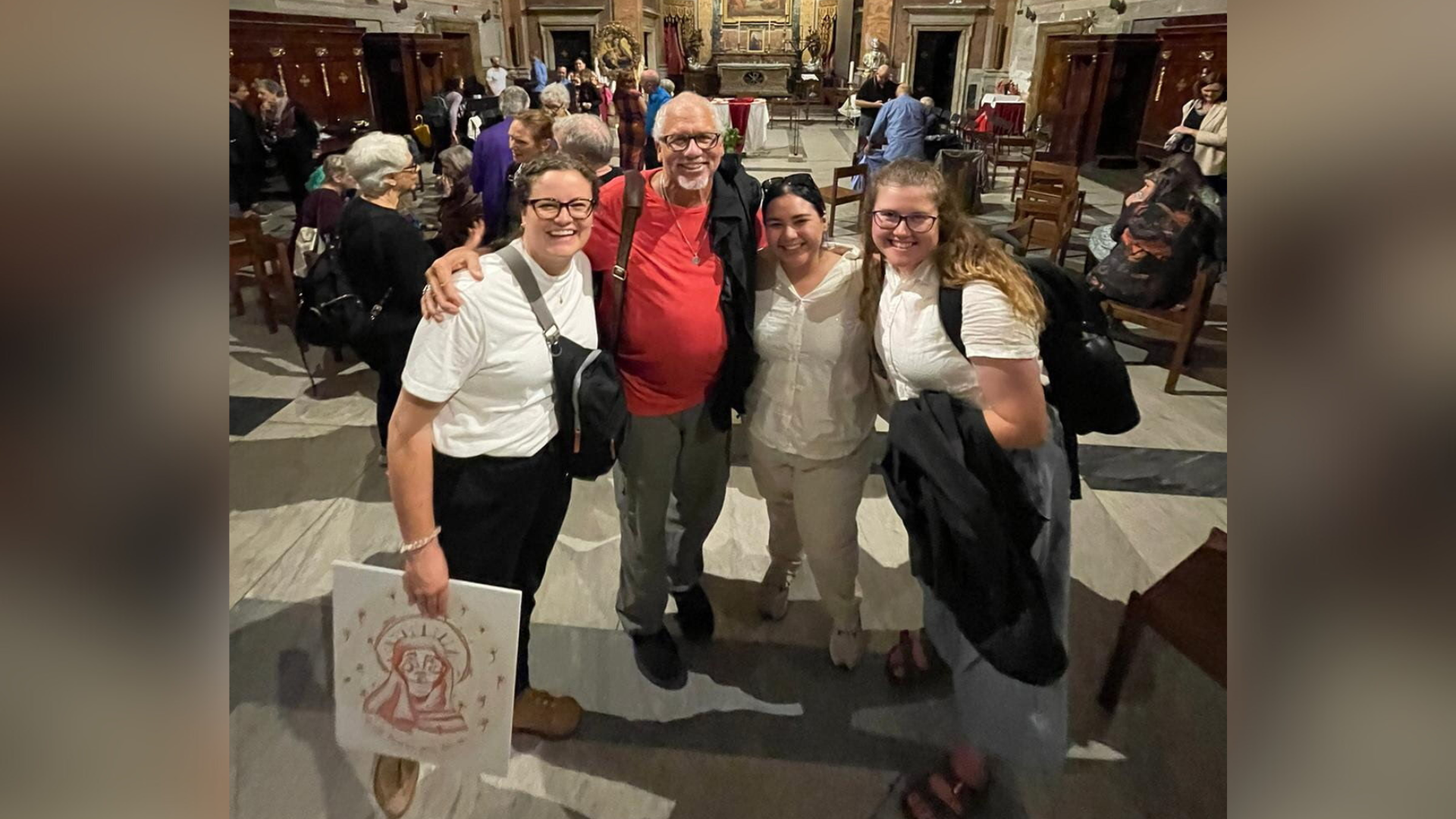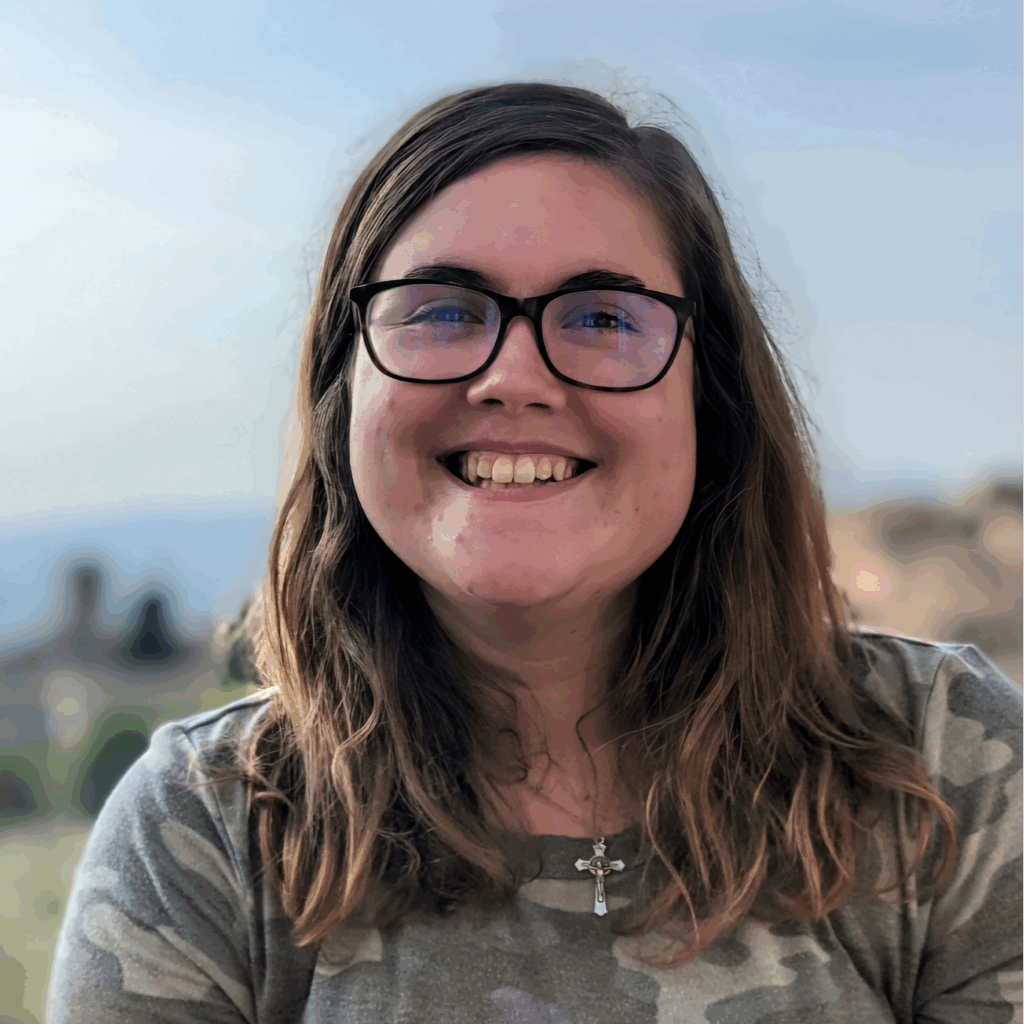Carrying Phoebe

This reflection was published in the August 20, 2025 issue of Discerning Deacons’ newsletter The Witness. Subscribe to receive reflections like these in your email inbox every 1-2 weeks, along with a digest of upcoming events and opportunities to connect with the mission of Discerning Deacons.
All we know about St. Phoebe is condensed into two verses in the book of Romans, written by Paul in the first century: “I commend to you our sister Phoebe, a deacon of the church in Cenchreae. I ask you to receive her in the Lord in a way worthy of his people and to give her any help she may need from you, for she has been the benefactor of many people, including me.” (Romans 16:1-2)
Throughout my journey with Discerning Deacons over the past two years there has been ample time discussing, exploring, and sharing Phoebe’s brief story, and then discerning what our hurting Church would look like if it embraced the gifts, leadership and lived experiences of women. In those discussions I spent a lot of time thinking about these two verses, brief though they may be.
What do they tell us about Phoebe? She was a dear friend–a highly respected friend–of the disciple Paul. She was a deacon (not deaconess, for the Greek word diakonos is applied to both men and women in equal regard and with equal responsibility). She lived in Cenchreae, a town in the region of Corinth, Greece.
Modern scholarship gives us a little more information, but sparsely. It tells us that Phoebe was commissioned to carry Paul’s letter from Cenchreae to Rome, a perilous journey of over seven hundred miles (over 1,000 kilometers.) Not only did she successfully deliver it, but she was the first to preach it to the people of Rome. She is believed to have been born early in the first century, and died in 57 A.D. As a deacon, she most likely presided over a house church out of her home in Cenchrae.
I always struggle with connecting personally to saints when I know so little of their life stories. Even among people I know, I connect by sharing experience, stories, and memory. Without any of these in common, how can we know one another?
On October 3, 2024 our delegation of Discerning Deacons synodal pilgrims hosted a St. Phoebe prayer service at the San Lorenzo Youth Center just outside St. Peter’s Square, originally constructed in the seventh century, closer in time to Phoebe’s life than my own.
Our service began with a procession from St. Peter’s, with each of us holding a banner or an icon of Phoebe and other saints. An icon illustrated by one of our pilgrims, Angela Dimler of St. Paul, Minnesota, depicts Phoebe in a playful and intentional style, a creatively modern way of imagining the saints. Phoebe gazes directly at the viewer, with a confident and convicted expression on her face. Around her floats a cloud of dandelion seeds, which Angela describes as “undesired but beautiful. And so, so prolific.” Like Phoebe’s message and the movement she stands for, dandelions represent a persistent and insistent truth that perseveres despite resistance.

Later in the day, we walked back to our lodging in the rain. I had an umbrella, and I offered to carry Angela’s Phoebe, which was printed on a large and unwieldy styrofoam board. The walk was dark, cold, and longer than we had expected. We were absolutely drenched by the time we arrived home. My backpack and everything in it was wet. But Phoebe, held to my heart under my small travel umbrella, was dry.
It occurred to me days later, as I carried her to my next lodging in a different neighborhood, on foot and then on bus, and then on foot again, that I then understood how she must have felt carrying the Letter to the Romans for so many miles. I am sure she faced downpours and storms and countless other obstacles along the way. But we naturally develop an affection for that with which we are entrusted. I pictured her holding the letter tightly to her heart to protect it from the elements, and I suddenly felt as though I knew the woman called Phoebe both personally and profoundly.
How joyful and how terrifying it is to deliver a message that is so unknown and so beautiful! A message which is perhaps undesired but so persistently and prolifically genuine, like the dandelions.
Though the icon is safe inside, having journeyed back home to the US, I continue to carry her with me, along with the vision of the Church that she has both inspired and informed. And I continue to explore what it means to carry her: in my arms, in my words, in my actions. As I carry her and invite her to walk alongside me on my own journey as a messenger, I continue to speak her name.
Phoebe. Deacon. Preacher. Protector. Truth-carrier.
Saint Phoebe, pray for us!

Elise Stankus is a graduate student at Rosemont College and a leader in Synodality in Catholic Higher Education in the Archdiocese of Philadelphia (SCHEAP). She traveled to Rome with Discerning Deacons during the October 2023 and 2024 synod assemblies. Elise originally published a series of reflections on her Witnessing Synod blog shortly after she attended Discerning Deacons’ pilgrimage to Rome during the October 2024 synod assembly. She was recently featured alongside her mentor Kascha Sanor on Ignatian Solidarity Network’s “Ignatian Voices for Justice Podcast” reflecting on synodality and the diaconate. Listen to the podcast episode here.


